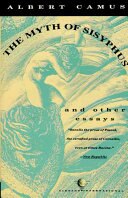


By writing, “Living is keeping the absurd alive”, the author chooses to remain rational and in constant awareness of the absurd because he cannot free himself from his truth, a philosophical position he calls “revolt” (Camus 70). However, Camus rejects both physical as well as philosophical suicide as means of escaping the absurd. Belief in the unseen becomes necessary once individuals realize that rationality has its limits. That statement implies transcending rationality to grasp ultimate meaning through faith. Other than committing physical suicide, one could also die philosophically by taking a leap of faith. That is an intolerable situation to be in, and a method of escape is therefore required. The absurd, according to Camus, is the confrontation between an irrational world and “the wild longing for clarity whose call echoes in the human heart.” To put it another way, humans want something that the world is not willing to give them. That is to say, there is a realization of the absurdity of human existence and that, therefore, life is not worth living. According to Camus, therefore, suicide is a form of confession that “life is too much for you or that you do not understand it” (61). He writes, “Beginning to think is beginning to be undermined” (48). Camus thinks that awareness or the onset of consciousness is the root cause of suicide. However, Camus is concerned that the problem of suicide has been dealt with only as a social phenomenon, and that what happens within the individual heart or mind has not been considered. Albert Camus uses the myth of Sisyphus to deliberate on the theme of suicide, which he considers the only “truly philosophical problem” whether or not life is worth the living (26). The meaningless penalty involved rolling a boulder up a slope only for the rock to roll back down as soon as Sisyphus had reached the summit. The mythical Sisyphus was given an arduous punishment that was to continue for eternity.


 0 kommentar(er)
0 kommentar(er)
